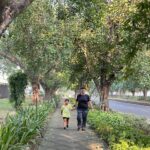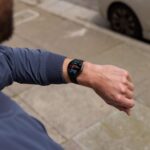New Delhi. September 24, 2018 :
The word ‘arth’ means Joint and ‘ritis’ means inflamed. Inflammation of joint is called arthritis
SYMPTOMS:
- The day, one feels that he/she would prefer to go by lift, the symptom is right there. Some difficulty while sitting down and standing up are early signals.
- If he/she finds some difficulty to go for his/her usual morning / evening walk and stays indoors most of the time, it also indicate early signals.
- Stand erect, join your toes and heels. The inner side of your knees must touch each other. If there is gap of 2 or 3 fingers, be sure that arthritis has developed.
There are many types of arthritis. Gout is one of the painful diseases of the body. Generally at first pain begins in the fingers of the right foot. Sometimes there is pain in the heels also. The disease is mainly caused by the increase of uric acid in blood, deficiency of Potassium, less intake of water, obesity etc. Normal uric acid level in Men: 3.4 to 7.0 mg/dl and in women 2.4 to 6.0 mg/dl.
Osteo arthritis is the most common disease, which usually occurs after the age of 50. When one or more joints of the body degenerates, it is known as osteo-arthritis. It is a disease of the cartilage of joint or parts of the larger joints which bear the weight of the body. With age the cartilage that cushions the bones of the knee, gradually erodes, wears away, breaks and becomes thin. The bones then rub against one another and cause knee pain and sufferings.
Causes: Lethargic life style, obesity, osteoporosis, diabetes, thyroid, metabolic disorders, constipation, excess intake of strong medicines for some other diseases in the body, improper circulation of blood etc.
IS OSTEO-ARTHRITIS CURABLE?
Most arthritis are chronic just like diabetes, thyroid, hypertension and need life long effective treatment. The user of word cure would not be justified. There is no cure for arthritis in any system of medicine, be it allopathy, Ayurveda, homeopathy. Once the damage is done, one should try to reduce the disease as far as possible and prevent further destruction of the joints.
There are may forms of treatment which can keep the disease under control.
PREVENTIVE MEASURES AND REMEDIES.
Physical activity: When the joints hurt most of the people stop their physical activity with the result their muscles become weak and stiff.
Oil Massage: Massage your legs by rubbing from the ankle upwards, 05 minutes on each leg with olive, mustard, till or any Ayurveda oil. It will help improve the blood flow.
Walk: Try to go out for a walk. You may use walking stick, wear knee cap to minimize the risk of fall and strain on your knees. At home you may walk around barefoot.
Stationary bicycle: Ride a stationary bicycle daily for about 10-15 minutes. It helps to strengthen the leg muscles and put less pressure on the knees and joints.
PRACTICE DAILY YOG ABHYAS compatible with your age and health status, within the limit of comfortable tolerance. The ideal asanas and pranayama are given below.
Sit in a firm chair, knees bent and feet flat on the floor and do following first 04 exercises atleast 10 times daily.
- Sit and stand. Lift your bottom and stand up straight and then sit down.
- Straight leg raise. Straighten alternate leg out in front of you with thigh slightly off the chair. Keep the knee joint straight. Hold for a slow count of 05 and then lower the leg slowly.
- Knee lift: Slowly lift your alternate knee upward towards your chest. Hold for a slow count of 05 and slowly lower the foot back to the floor.
- Stand erect with feet 6-8 inches apart. Hold the back of the chair with left hand for balance and bend your right leg behind you and grab it just above the ankle with your right hand. Pull the ankle backward towards your buttocks. Hold the stretch for 30 seconds. Release the leg, bring it back to the floor. Change the leg position and repeat 05 times. This exercise will help you to make your walking and climbing stairs easier. As you improve do some more exercise from the list given below.
MICRO EXERCISES FOR LEGS : such as Heel slides, toe bending, Ankle bending, Ankle side and circular rotation, leg stretching – Janu Naman. Ardh titli and Poorm Titli asan, Tad asan (in the lying pose), yogic cycling, Leg rotation, uttanpad asan, chakki challan, dynamic spinal twist – side ways at shoulder level, Trikon asan, bhujang, and shalbhasan and shavasan. Deep and long breathing, anuloom – vilom, surya bhedi, kapal bhaati, Agnisar and bhramari pranayama.
APPROPRIATE DIET: Eat Food rich in Vitamin A, Calcium and Potassium.
Vitamin A is good for repairing tissues and cartilage. Natural source are all coloured fruits and vegetables. Carrots are very rich in Vitamin A.
Calcium: Deficiency of calcium leads to osteoporosis. The best source of calcium, are milk curd, paneer, Green leafy vegetables, fish etc.
Potassium: Washes blood. Its deficiency can lead to weakness, constipation, loss of memory etc. Significant sources are Dry fruits such as dates (Khajoor), walnut, almonds, peanuts, cashew nuts, fresh fruits such as banana, kharbooja, aadu, pomegranate, grapes etc. Always eat in moderation to avoid weight gain. Avoid fried foods, mithai, ice cream, aerated drinks, smoking and alcohol etc.
Obesity : causes arthritic issues affecting mobility. Varicose veins, diabetes, cancer etc. Being overweight can increase the stress on weight bearing joints such as knees and hips. Even a little weight loss can relieve some pressure and reduce pain.
Expose yourself to sunshine in the morning. 8 AM – 09 AM daily for a doze of vitamin D. Do not give up even if improvement is slow. Remember the ware is not lost until you stop trying.
The Author of this article is Sudarshan Babbar







